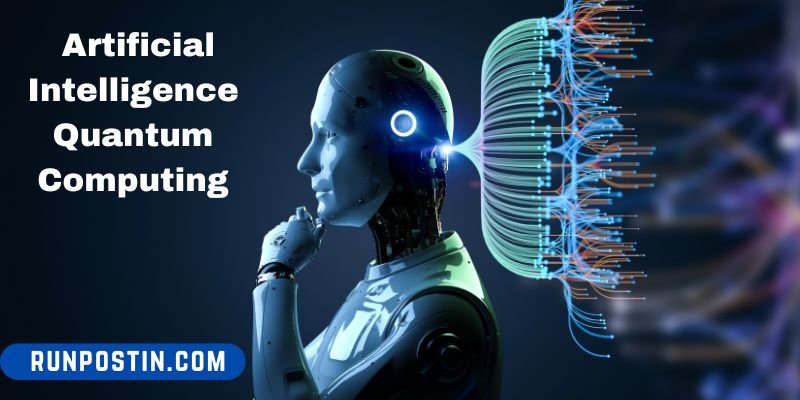
Maxtechonline.com Artificial Intelligence Quantum Computing are two of the most transformative technologies reshaping industries and redefining the boundaries of what is possible. As their convergence accelerates, businesses, researchers, and innovators stand at the brink of a technological revolution that promises to unlock unprecedented computational power and intelligence. In this comprehensive exploration, we will dive into the key developments, applications, and potential impacts of AI and quantum computing.
Understanding Maxtechonline.com Artificial Intelligence Quantum Computing
MaxTechOnline.com is a leading platform that explores cutting-edge advancements in artificial intelligence (AI) and quantum computing. As these two revolutionary technologies continue to evolve, Maxtechonline.com Artificial Intelligence Quantum offers insights, news, and expert analysis to help readers stay informed about the latest developments.
Artificial intelligence is transforming industries, enhancing everything from automation to data analytics, while quantum computing promises to revolutionize complex problem-solving with unprecedented speed and efficiency. MaxTechOnline.com provides in-depth articles on how these technologies intersect, exploring their potential to solve some of the world’s most pressing challenges.
Whether you’re an enthusiast, researcher, or business professional, MaxTechOnline keeps you updated on AI’s rapid advancements and the growing applications of quantum computing. The platform also discusses the ethical implications and future impact of these technologies, offering a comprehensive resource for anyone interested in the future of computing and intelligent systems.
What is Artificial Intelligence?
Artificial intelligence refers to machines’ ability to simulate human-like intelligence. It involves the use of algorithms, machine learning, and deep learning to allow systems to learn from data, adapt to changes, and make decisions autonomously. Today, AI powers numerous applications, from voice assistants and recommendation engines to autonomous vehicles and sophisticated medical diagnostics.
Types of Artificial Intelligence
- Narrow AI: This is AI designed to perform specific tasks, such as facial recognition or language translation. It excels in a narrow domain but does not generalize beyond its assigned function.
- General AI: This type of AI aims to mimic human cognitive abilities across a broad range of activities. Though still largely theoretical, achieving general AI could mean that machines would have the ability to think, reason, and act with the same flexibility as humans.
- Superintelligent AI: The most advanced and hypothetical form, superintelligent AI would surpass human intelligence in every aspect, raising profound ethical, philosophical, and existential questions.
What is Quantum Computing?
Quantum computing is a new paradigm in computing based on the principles of quantum mechanics. Unlike classical computers that use bits (0s and 1s), quantum computers utilize quantum bits, or qubits, which can exist in multiple states at once due to superposition. Quantum computing harnesses the strange behaviors of subatomic particles, such as superposition and entanglement, to process vast amounts of information simultaneously.
Key Concepts in Quantum Computing
- Superposition: Classical bits can either be 0 or 1. In contrast, qubits can be both 0 and 1 at the same time, exponentially increasing computing power.
- Entanglement: This quantum phenomenon allows qubits to be interconnected, such that the state of one qubit can instantaneously affect the state of another, regardless of distance. This feature could revolutionize data transmission and security.
- Quantum Gates: These are the operations applied to qubits that allow quantum computers to perform complex calculations. Unlike classical logic gates, quantum gates can manipulate superpositions and entangled states.
The Convergence of Artificial Intelligence and Quantum Computing

The intersection of Maxtechonline.com Artificial Intelligence Quantum Computing opens new possibilities in solving problems that are currently intractable for classical computers. The computational power of quantum computers could significantly enhance AI models, making them more efficient, faster, and capable of handling more complex datasets.
Quantum Machine Learning
One of the most exciting areas where quantum computing meets AI is in quantum machine learning. Traditional machine learning models, particularly deep learning models, require substantial computational resources to process massive datasets. Quantum computers can dramatically accelerate these computations, reducing the time it takes to train models and uncover patterns.
Quantum machine learning algorithms, such as the Quantum Support Vector Machine and Quantum Neural Networks, show promise in areas like natural language processing, image recognition, and drug discovery.
Enhanced Optimization Problems
Quantum computing excels at solving optimization problems, which are crucial for AI. Optimization involves finding the best solution from a set of possible solutions and is at the core of many AI applications, such as route planning, resource allocation, and financial modeling. Quantum optimization could vastly improve the speed and accuracy of AI systems in these fields.
Simulating Complex Systems
AI is already being used to simulate complex systems, from climate models to chemical reactions. Quantum computers could elevate this capability, allowing for the simulation of quantum systems themselves—something that classical computers struggle to do efficiently. This will have significant implications for fields such as material science, pharmaceuticals, and cryptography.
Real-World Applications of AI and Quantum Computing
Healthcare and Drug Discovery
AI is transforming the healthcare industry by enabling personalized treatment plans, predicting disease outbreaks, and optimizing hospital workflows. Quantum computing could push these advancements further, particularly in drug discovery. Discovering new drugs requires analyzing the interactions between molecules, a process that quantum computers could expedite by simulating molecular behavior more accurately than classical computers.
Financial Services
The financial industry relies heavily on AI for algorithmic trading, fraud detection, and customer service chatbots. Quantum computing has the potential to revolutionize finance by solving complex problems like portfolio optimization and risk analysis in real-time. AI-driven quantum financial models could deliver more accurate predictions, helping institutions make better, faster decisions.
Cybersecurity
As AI advances, so do cyber threats. Quantum computing, combined with AI, could strengthen cybersecurity by enhancing encryption methods and detecting vulnerabilities faster than ever before. Quantum cryptography uses the principles of quantum mechanics to create virtually unbreakable encryption, making data transmission highly secure.
Supply Chain and Logistics
AI is already optimizing supply chain logistics by predicting demand, improving delivery routes, and reducing costs. The introduction of quantum computing could revolutionize logistics by solving highly complex optimization problems that classical computers struggle with, ensuring that global supply chains become more efficient and resilient.
Challenges in the Integration of AI and Quantum Computing
While the synergy between AI and quantum computing offers extraordinary potential, several challenges remain.
Technical Limitations
Quantum computing is still in its infancy, with current quantum hardware limited to small numbers of qubits and prone to errors due to quantum decoherence. For AI to truly benefit from quantum computers, these systems need to become more stable and scalable.
Algorithm Development
Quantum algorithms are still in the experimental stage. To fully harness the power of quantum computers, researchers need to develop algorithms that can outperform classical ones in real-world applications. Creating quantum-enhanced AI algorithms requires a deep understanding of both quantum mechanics and machine learning.
Infrastructure and Cost
Building and maintaining quantum computers is costly, requiring specialized infrastructure like cryogenic systems to keep qubits stable. Scaling quantum computing for widespread AI use will demand significant investment in infrastructure and technology.
The Future of AI and Quantum Computing
The convergence of Maxtechonline.com Artificial Intelligence Quantum is not just a theoretical concept; it is already being explored by tech giants like Google, IBM, and Microsoft. While we are still in the early stages, these technologies could redefine industries and create entirely new business models in the years to come.
As quantum hardware continues to evolve, we expect to see quantum computers unlocking new levels of AI capability, solving problems that today seem insurmountable. The journey may be long, but the eventual integration of these technologies will undoubtedly shape the future of computing.
Also Read More:
Blog.bungabunga.co.id: A Comprehensive Guide
Share To Help
